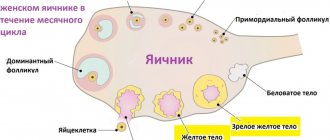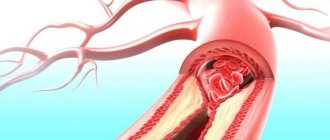Immature oocytes are something that almost all women who have encountered problems conceiving know. Immature eggs are ovarian follicles that have not undergone the necessary cell division to reduce the number of chromosomes in the nucleus from 46 chromosomes to 23 chromosomes. Can an immature egg be fertilized? Immature oocytes are not capable of fertilization by sperm and the formation of a viable embryo. If a woman has a problem with the maturation of eggs, then she will most likely encounter difficulties in conceiving and will need egg donation.
To produce both mature and viable eggs during ovulation, ovarian follicles must undergo a cell division process called meiosis, which is a cell division process specific to eggs and sperm. Meiosis reduces the number of chromosomes in the cell nucleus from 46 chromosomes to 23 chromosomes, which allows it to be fertilized by sperm, which will have those paternal 23 chromosomes. Therefore, an immature egg is not able to be fertilized by sperm, since its nucleus contains too many chromosomes and does not need a “second half”.
Eggs mature every 28 to 30 days in an adult woman and are released from the ovary into the fallopian tube to be fertilized by sperm. There are certain conditions under which oocytes do not mature in the ovaries.
Egg maturation: how it should be
From birth, women have a supply of oocytes - immature eggs, about 400 thousand of them. With the onset of puberty and the onset of menstruation, the number of oocytes gradually decreases. Each cycle, under the influence of luteinizing and follicle-stimulating hormone, the follicle matures.
The process of germ cell maturation can be described as follows:
- production of follicle-stimulating hormone;
- maturation of follicles in the ovary;
- rupture of the dominant follicle with release of the egg;
- movement of the reproductive cell towards the uterus;
- formation of the corpus luteum at the site of the follicle.
A follicle is a structural component of the ovary. Here the egg matures, surrounded by two layers of connective tissue and a layer of epithelium. Each cycle, several follicles mature in the ovary, but only one of them - the dominant one - will burst, releasing the mature germ cell.
At the site of the follicle, a corpus luteum forms, which produces a small amount of progesterone and estrogen. The work of the corpus luteum is necessary to thicken the uterine mucosa. At the same time, the egg does not stand still - it moves along the fallopian tubes towards the uterus.
This is where the female reproductive cell meets the sperm if attempts are made to conceive. A zygote is formed, which attaches to the prepared, thickened walls of the uterus. The process of conception is facilitated not only by the work of the corpus luteum. Under the influence of hormones, the rectal (basal) temperature rises to 37-37.5 oC - calendars are often compiled based on this criterion, calculating one’s own ovulatory phase for conception.
In female nature there is a place for individual characteristics of the process, but if it deviates from what is described, conception will not occur. For example, if the passage of the egg is blocked by inflamed fallopian tubes, or the cell does not mature.
Causes of female infertility
Impaired egg maturation
Impaired egg maturation is a common cause of female infertility. This is usually caused by hormonal imbalances, which occur much more often in women than in men. An imbalance of hormones has a negative impact not only on the process of egg maturation, but also leads to disturbances in ovulation and the functions of the corpus luteum. Ovarian dysfunction is usually caused by disorders in other endocrine glands - the pituitary gland, thyroid gland or adrenal glands. If an endocrine disorder is the only cause of infertility, infertility treatment involves correcting the hormonal balance and stimulating egg maturation. If this is not the only reason for infertility, the doctor selects the most suitable treatment method for the couple.
Polycystic ovary syndrome (PCOS)
Often, female infertility is caused by the formation of a large number of small cysts (bubbles filled with fluid) in the ovaries - the so-called polycystic ovary syndrome. In most cases, this condition is combined with high levels of male hormones in the blood. In PCOS, infertility is usually associated with problems with egg maturation. Stimulating ovulation with FSH is often an effective treatment.
Tubal infertility
The fallopian tubes carry sperm to the egg and fertilized eggs to the uterus. If the fallopian tubes are stuck together or otherwise blocked, the movement of eggs may be difficult or impossible. Blocked fallopian tubes can be caused by inflammation, previous ectopic pregnancies, surgery, or spontaneous growth of the endometrium (the lining of the uterus) outside the uterus (endometriosis). In reproductive medicine, there are various methods for checking the fallopian tubes for patency. In this case, pregnancy can be achieved using the IVF method.
Endometriosis
Even more interesting:
Echo signs of uterine fibroids
Worm eggs on the butt photo
Endometriosis is a disease in which the lining of the uterus (endometrium) grows outside the uterus. The cause of this disease is unknown. Its foci can be on the ovaries, fallopian tubes, uterus, intestines, bladder and other organs. When foci of endometriosis are located in the fallopian tubes, they lose their function due to scar formation. And at the same time, the patency of the fallopian tubes for fluid is often not lost. It is believed that the microenvironment created by foci of endometriosis prevents the onset of natural pregnancy. Therefore, the presence of endometriosis is one of the indications for IVF.
How a follicle can behave
For a woman to become pregnant, the follicle must mature and release a full-fledged, healthy egg. But this doesn't always happen. Under the influence of hormonal imbalances and other reasons, the follicle may behave differently. Depending on the nature of the pathology, there are:
- "sleeping" ovaries;
- cystic formations;
- persistence of the corpus luteum;
- multifollicular ovaries.
When the follicle ruptures, a small amount of fluid containing the released egg is released. But if the germ cell is not released, an ovarian cyst is formed. This happens due to hormonal imbalances and external factors. The fluid that should have come out accumulates inside, stretching the connective tissue, and a cyst forms.
The development process is similar to multifollicular ovarian syndrome. This happens when there is simply no mature leading follicle - several eggs begin to mature at the same time, but none are released. This happens with a lack of estrogen and progesterone. In place of the follicles that have begun to develop, small cysts form.
Cystic formations are also characteristic of the corpus luteum in pathologies. The egg leaves the follicle, but the corpus luteum, having fulfilled its functions, does not dissolve, but swells and stretches to a cystic formation.
If the corpus luteum persists, pregnancy will also not occur - this is a condition in which the corpus luteum releases progesterone for too long without atrophying. This is also dangerous for a woman’s health in general, since excess progesterone provokes:
- decreased uterine tone;
- rejection of mucous membranes;
- prolonged, heavy bleeding.
The follicle may not mature at all in the egg. This happens with a lack of follicle-stimulating hormone or with hyperandrogenism. A woman is diagnosed with “dormant” ovaries, but this does not mean that attempts to conceive should be abandoned. The condition is corrected by hormonal therapy, the maturation of the dominant follicle is stimulated with the release of the germ cell.
Why doesn't she ripen?
There are several reasons why the egg does not mature. They are conventionally divided into internal factors - causes directly in the woman’s body, as well as external factors - the influence of lifestyle and the environment.
- inflammation in the pelvic organs;
- deficiency of progesterone and estrogen;
- inflammation of the membranes of the brain;
- dysfunction of the hypothalamic-pituitary system;
- infections of the abdominal cavity or genitals.
Sometimes the reason is hormonal imbalance. But the disruption of hormone production itself can be provoked by external factors:
- depression;
- severe stress;
- strict diet;
- clinical obesity;
- sudden climate change;
- frequent change of sexual partners.
Dysfunction is also observed in women with bad habits; they are more susceptible to early menopause.
Natural physiological causes
Any acute disease in the body will lead to the fact that the level of hormones will be reduced and the egg will not mature. This is how nature protects the human species from extinction, because if conceived in the acute phase of illness, a child may be born with defects.
Cycles in which the egg does not mature also occur in young, healthy women. This happens 2-3 times a year. The cell begins to prepare for release, the follicle also grows under the influence of estrogen and FSH, but LH is not released and the vesicle does not burst. The rupture occurs later, when the egg is no longer capable of fertilization, and menstrual flow begins almost immediately.
This is not a pathological process and it occurs even in healthy women. But if the frequency of anovulatory cycles increases, you need to undergo examination.
Symptoms and diagnosis
Since there are many reasons for an unripe egg, the symptomatic complex is also extensive. What can the condition be associated with:
- fluctuations in body weight for no apparent reason;
- mood changes, apathy, tearfulness, irritability;
- swelling of the limbs;
- increased appetite;
- poor sleep;
- pain in the pelvic area;
- atypical discharge, an increase in its volume;
- disorders of the gastrointestinal tract.
For diagnosis, the gynecologist will prescribe:
- general clinical analysis of blood and urine;
- study of FSH and LH levels;
- determination of estrogen and progesterone;
- determination of androgen levels;
- bacterial culture from the vagina;
- Ultrasound of the pelvic organs.
If inflammation or neoplasms are suspected, the doctor will prescribe a vaginal ultrasound. The remaining studies are prescribed to clarify the diagnosis.
Reasons why it doesn't ripen?
When the bubble in the ovary does not grow, women feel anxious. There are many reasons for this condition. As a result, the follicle does not form at all or is empty.
If a woman is young, this indicates that she has certain problems ; for older people, this condition is practically the norm.
Anovulatory cycles occur without ovulation. They are considered a period of rest for the ovaries. In young healthy women, such cycles occur 2-3 times a year, after 33 years - up to 4 times a year.
Thin women who are constantly on strict diets from lack of ovulation They experience a deficiency of estrogen, and over time, not only ovulation, but also menstruation disappears.
If the blisters do not grow, the woman is diagnosed with infertility. To eliminate the problem, it is important to identify the cause of the pathology.
The following factors can disrupt the maturation processes:
- Ovarian dysfunction resulting from injury, inflammatory disease, or after surgery.
- Malfunctions of the endocrine system when there is a deficiency of progesterone and estrogen.
- Brain dysfunction caused by inflammation of the membranes of this organ or injury to it.
- A benign or cancerous growth in the pituitary gland or hypothalamus.
- Infectious diseases affecting organs located in the abdominal cavity.
- Depressive state, severe stress.
- Development of menopause under the age of 45 years.
- Obesity or long-term adherence to a strict diet.
Treatment
To treat dormant ovaries, a course of the FSH hormone or complexes is prescribed that will stimulate the functioning of the reproductive system. Cystic formations are treated depending on the stage and extent. Complexes of progesterone with estrogen and anti-inflammatory drugs in tablets and suppositories are prescribed:
- Duphaston;
- Anteovin;
- Janine;
- Ibuprofen;
- Paracetamol;
- Logesta et al.
Only a gynecologist is involved in the selection, since such medications without the supervision of a doctor can seriously harm hormonal levels.
If the disease is infectious, antiseptic and antibacterial drugs and anti-fungal drugs are first prescribed:
- Terzhinan;
- Polygynax;
- Hexicon;
- Betadine;
- Ketoconazole and others.
Any method of treatment is selected by a doctor only after complete laboratory and hardware diagnostics and clarification of the diagnosis. The examination is repeated approximately once a cycle to track the dynamics.
The reasons why the egg does not mature are identified by the gynecologist during examination and during diagnosis. Most of them can be treated, after which ovulation is restored, and attempts to conceive end in a successful pregnancy.
Preventive measures
To ensure that the female reproductive system does not fail, the follicles develop in a timely manner and conception occurs, it is necessary to take some preventive measures. Necessary:
- avoid a sedentary lifestyle;
- give up addictions;
- eat a balanced diet;
- avoid overwork, both physical and mental;
- have regular sex life;
- use barrier contraception to protect against sexually transmitted infections;
- exclude abortions;
- control hormone levels;
- select oral contraceptives only with a doctor;
- promptly identify and treat diseases;
- undergo a routine gynecological examination (every 6 months).
What to do?
In order for a doctor to diagnose infertility due to the presence of undeveloped follicles, you need to undergo an ultrasound diagnosis. It is carried out at the beginning of the cycle, on days 8-10. Having received the results of the study, the doctor tells the patient about its characteristics.
Diagnostics may detect:
- Normal ovulation.
- Persistence.
- Regression of the dominant vesicle.
- Follicular cyst.
- Luteinization.
- The fact that the bubble for some reason does not burst.
An ultrasound makes it possible to identify several reasons at once that prevent a woman from becoming pregnant. After this, the doctor selects a suitable treatment method.
Features of the process in the ovaries
The development of a bubble is a rather complex process.
Its maturation is helped by progesterone and lutein. If there is a deficiency of these hormones, a woman is diagnosed with diseases of the genital area. Every month, several vesicles develop in the ovaries of a healthy girl. Sometimes their number reaches a dozen, but only one is able to reach the required size. He is called dominant.
The rest begin to gradually regress. When there is a hormonal imbalance, they do not die off, but begin to interfere with the normal development of the dominant follicle.
ATTENTION: If the menstrual cycle is regular, the woman can determine the period of follicle maturation herself. In this case, you need to focus on the indicators of basal therapy and your own feelings. If ovarian stimulation was performed, this process is monitored using ultrasound. The study is carried out on different days.
The following signs indicate the maturation of the vesicle and the imminent onset of ovulation:
- Nagging pain localized in the abdominal area.
- The appearance of vaginal whitish discharge in larger quantities than usual.
- A decrease in rectal temperature approximately one day before ovulation.
- Increased levels of the hormone progesterone in the blood.
- Changes in mood, irritability, increased sensitivity.
If several follicles mature in one cycle, this is the norm and indicates that the likelihood of multiple pregnancy is quite high.











